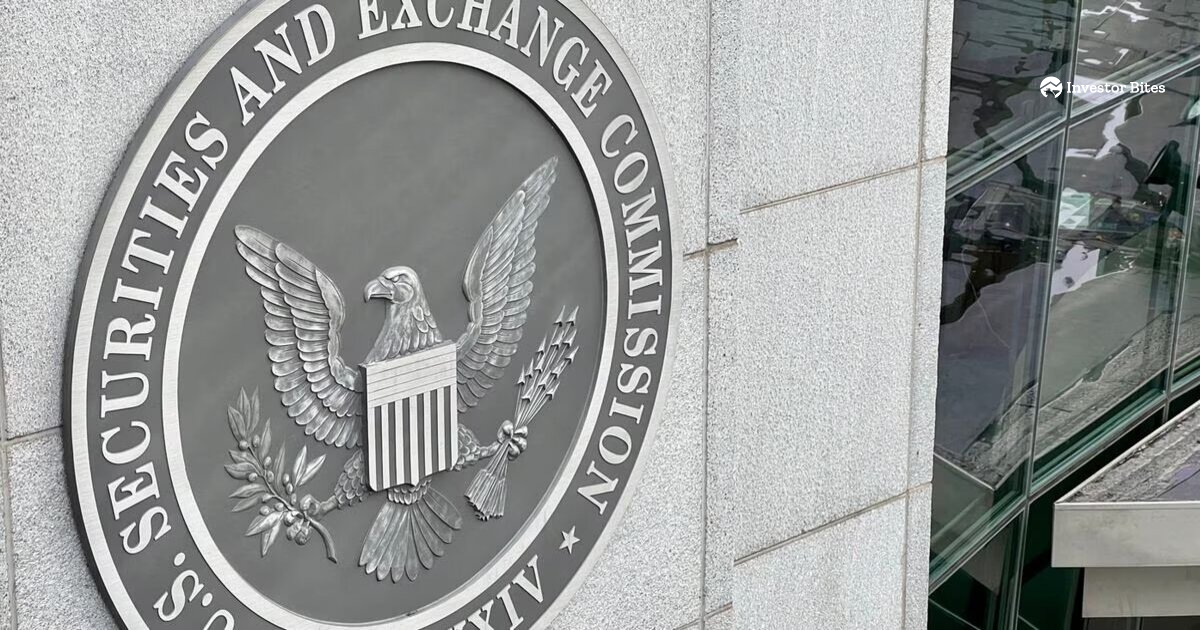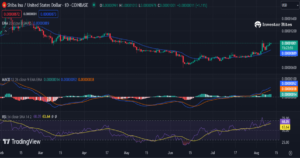
SNEAK PEEK
- SEC accepts penalty payments in Ether, embracing cryptocurrencies.
- Insider trading case results in significant penalties and sentences.
- Uncertainty surrounds SEC’s plans for the acquired cryptocurrencies.
In an unprecedented move, the U.S. Securities and Exchange Commission (SEC) now accepts penalty payments in Ether (ETH). This groundbreaking decision follows the settlement of insider trading charges against a former Coinbase manager, Ishan Wahi, and his brother, Nikhil Wahi.
BREAKING: The SEC is now accepting penalty payments in Ether. 😳😂 pic.twitter.com/su5fY35poD
— Mr. Huber🔥🦅🔥 (@Leerzeit) May 31, 2023
The Wahi brothers pled guilty to conspiracy to commit wire fraud in a landmark case, which resulted in significant crypto-related penalties. Ishan was sentenced to two years in prison and was ordered to forfeit nearly 11 Ether and 9,440 Tether tokens. His brother Nikhil received a 10-month sentence and a penalty of $892,500.
SEC’s Unexpected Turn to Cryptocurrency
The SEC’s acceptance of Ether for these penalties demonstrates a noteworthy shift in how financial regulatory authorities interact with digital currencies. For years, regulators have viewed cryptocurrencies cautiously due to their potential misuse for fraudulent purposes, volatility, and lack of central control.
Yet, by receiving Ether as a form of payment, the SEC might indirectly acknowledge cryptocurrencies’ legitimacy and growing acceptance. Nevertheless, the decision raises new questions regarding what the SEC plans to do with these acquired digital assets.
Stocks in Limbo: The Retail Investment Paradox
Will they be held or sold back into the market? Both possibilities come with challenges and potential implications for retail investors. However, if the SEC decides to hold onto the cryptocurrencies, they may inadvertently become market participants.
Given their role as market regulators, this could lead to potential conflicts of interest. Furthermore, this could add another layer of volatility to the cryptocurrencies’ value if the market perceives the SEC as a significant holder.
Alternatively, should the SEC opt to sell the forfeited cryptocurrencies, the timing and method of such sales could impact the market. If the SEC were to dump the cryptocurrencies on the retail market all at once, the market could face a supply shock leading to increased price volatility.
In conclusion, while it’s yet unclear what the SEC’s exact approach will be, their actions, in this case, represent an important precedent. How they handle the forfeiture of cryptocurrencies may shape how similar future cases are governed in the U.S. and around the globe.
- SEO Powered Content & PR Distribution. Get Amplified Today.
- PlatoAiStream. Web3 Data Intelligence. Knowledge Amplified. Access Here.
- Minting the Future w Adryenn Ashley. Access Here.
- Buy and Sell Shares in PRE-IPO Companies with PREIPO®. Access Here.
- Source: https://investorbites.com/crypto-storm-sec-accepts-eth-as-penalty-payments/
- :is
- 11
- 22
- 31
- 500
- 9
- a
- acceptance
- accepting
- Accepts
- acknowledge
- acquired
- actions
- add
- against
- All
- an
- analysis
- and
- Another
- approach
- ARE
- around
- AS
- Assets
- At
- Authorities
- back
- BE
- become
- both
- brothers
- by
- case
- cases
- cautiously
- Center
- central
- challenges
- charges
- coinbase
- come
- commission
- commit
- conclusion
- Conspiracy
- control
- could
- crypto
- crypto exchange
- cryptocurrencies
- currencies
- decision
- demonstrates
- detailed
- digital
- Digital Assets
- digital currencies
- do
- due
- dump
- embracing
- ETH
- Ether
- ethereum
- Ethereum News
- exchange
- external
- Face
- financial
- follows
- For
- forfeiture
- Former
- former coinbase
- fraud
- fraudulent
- Furthermore
- future
- globe
- governed
- groundbreaking
- Growing
- handle
- Have
- Held
- his
- hold
- holder
- How
- However
- HTTPS
- if
- Impact
- implications
- important
- in
- increased
- indirectly
- Insider
- insider trading
- interact
- interest
- internal
- into
- investigation
- investment
- investor
- Investors
- Ishan Wahi
- Lack
- landmark
- layer
- lead
- leading
- legitimacy
- manager
- Market
- Market News
- May..
- method
- might
- move
- mr
- nearly
- Nevertheless
- New
- news
- Nikhil Wahi
- noteworthy
- now
- of
- on
- once
- or
- participants
- payment
- payments
- plans
- plato
- Plato Data Intelligence
- PlatoData
- possibilities
- potential
- Precedent
- price
- Price Analysis
- prison
- purposes
- Questions
- raises
- received
- receiving
- regarding
- Regulators
- regulatory
- represent
- Results
- retail
- Retail Investors
- RETAIL MARKET
- Role
- s
- sales
- SEC
- Securities
- sell
- sentence
- sentenced
- settlement
- Shape
- shift
- should
- significant
- similar
- sold
- Storm
- such
- supply
- Tether
- The
- their
- These
- they
- this
- timing
- to
- Tokens
- Trading
- TURN
- two
- u.s.
- U.S. Securities
- Unexpected
- unprecedented
- value
- Volatility
- was
- were
- What
- What is
- which
- while
- will
- Wire
- Wire Fraud
- with
- years
- yet
- zephyrnet













